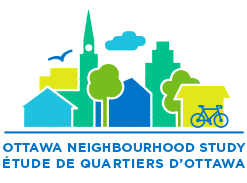How you can help StatCan test crowdsourcing in mapping Ottawa’s buildings
November 15, 2016
Canada’s national statistics agency is testing the power of crowdsourcing through an unusual project that aims to map Ottawa’s buildings.
As part of its pilot project, Statistics Canada is asking people who live in Ottawa-Gatineau to contribute information about local buildings to an open source map. The project was launched online last month.
“We’re going to see whether crowdsourcing can be used as an additional tool of data collection,” said Alessandro Alasia, chief of the Data Exploration and Integration Lab at Statistics Canada. “We’re in an exploratory phase. At this point, it’s not going to replace any of our traditional surveying.”
Statistics Canada has partnered with a popular open source platform, OpenStreetMap, to map the location and physical attributes of both public and private buildings in Ottawa-Gatineau. Among other things, the agency wants to know the size of each building, whether it’s residential or commercial and what kind of stores or shops it holds.
Statistics Canada officials will assess the reliability of the open source information as part of the two-year pilot project.
The idea grew out of the Big Ideas conference, an initiative designed to encourage innovation within the statistics agency. Alasia’s idea was one of those awarded project funding. “The potential is vast — and that’s why there’s a lot of curiosity about this project,” he said.
Alasia said the database could feed information into a future national building registry or into other Statistics Canada reports. All of the data collected will remain accessible to the public and could prove helpful to a developer or entrepreneur, for instance, in search of a neighbourhood underserved by restaurants or grocery stores.
The database could also prove useful in a crisis.
Open source mapping has been successfully deployed after natural disasters in Haiti and Nepal.
When an earthquake struck Haiti in January 2010, thousands of trapped victims sent out pleas for help by text, Facebook and Twitter. Online volunteers around the world pitched in to help by mapping their locations; they produced digital “crisis maps” to guide relief workers to people in need.
During last year’s devastating earthquake in Nepal, crisis maps — developed on OpenStreetMap with the help of satellite images, GPS devices and people on the ground — were able to pinpoint broken bridges, collapsed buildings and stranded populations.
Founded in 2004, OpenStreetMap has been called the Wikipedia of mapping because its platform allows anyone to update and edit online maps. It boasts more than two million volunteer mapmakers worldwide and is supported by a not-for-profit foundation based in Sutton Coldfield, England. The open source platform has also proved to be an important tool for mapping remote parts of Africa and Asia.
Alasia said the challenge for Statistics Canada is to understand whether the platform can produce the kind of complete, high quality data on which the agency can rely.
Already, about 200 people have signed up for updates on the open source project.
Source: http://ottawacitizen.com/news/local-news/statcan-wants-your-help-to-test-the-power-of-crowdsourcing-in-ottawa
